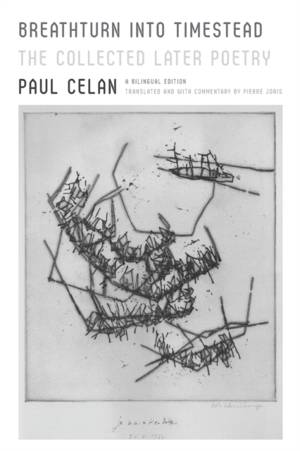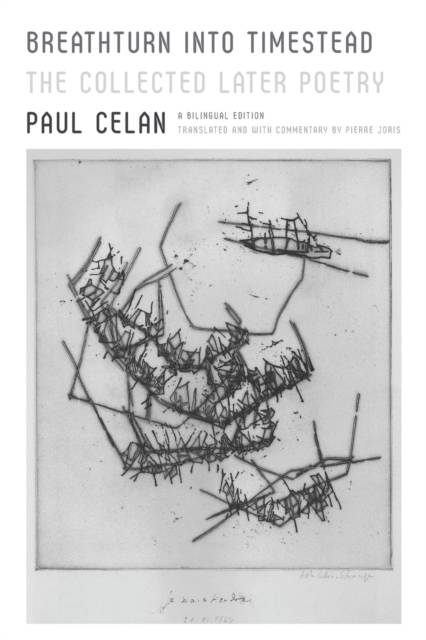
- Retrait gratuit dans votre magasin Club
- 7.000.000 titres dans notre catalogue
- Payer en toute sécurité
- Toujours un magasin près de chez vous
- Retrait gratuit dans votre magasin Club
- 7.000.0000 titres dans notre catalogue
- Payer en toute sécurité
- Toujours un magasin près de chez vous
Breathturn Into Timestead
The Collected Later Poetry: A Bilingual Edition
Paul Celan
Livre broché | Anglais
34,95 €
+ 69 points
Description
2015 National Translation Award Winner in Poetry
Paul Celan, one of the greatest German-language poets of the twentieth century, created an oeuvre that stands as testimony to the horrors of his times and as an attempt to chart a topography for a new, uncontaminated language and world. Breathturn into Timestead: The Collected Later Poetry gathers the five final volumes of his life's work in a bilingual edition, translated and with commentary by the award-winning poet and translator Pierre Joris. This collection displays a mature writer at the height of his talents, following what Celan himself called the "turn" (Wende) of his work away from the lush, surreal metaphors of his earlier verse. Given "the sinister events in its memory," Celan believed that the language of poetry had to become "more sober, more factual . . . 'grayer.'" Abandoning the more sumptuous music of the first books, he pared down his compositions to increase the accuracy of the language that now "does not transfigure or render 'poetical'; it names, it posits, it tries to measure the area of the given and the possible." In his need for an inhabitable post-Holocaust world, Celan saw that "reality is not simply there; it must be searched for and won." Breathturn into Timestead reveals a poet undergoing a profound artistic reinvention. The work is that of a witness and a visionary.Spécifications
Parties prenantes
- Auteur(s) :
- Traducteur(s):
- Editeur:
Contenu
- Nombre de pages :
- 736
- Langue:
- Anglais
Caractéristiques
- EAN:
- 9780374608033
- Date de parution :
- 01-02-22
- Format:
- Livre broché
- Format numérique:
- Trade paperback (VS)
- Dimensions :
- 152 mm x 229 mm
- Poids :
- 1065 g

Les avis
Nous publions uniquement les avis qui respectent les conditions requises. Consultez nos conditions pour les avis.






